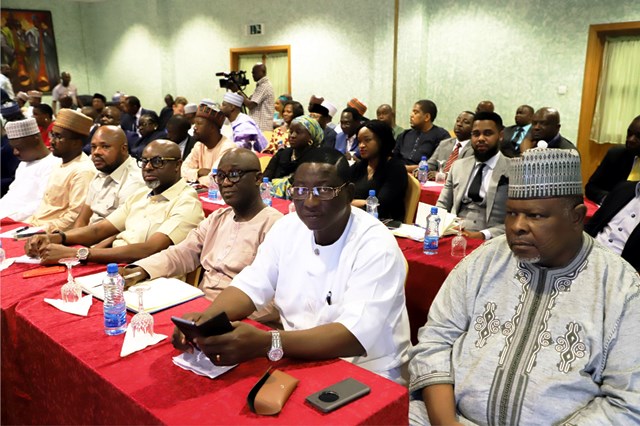Business
FG’s $2 bn Refining Pact With Niger Sparks Outrage

The recent Memorandum of Understanding (MoU) between the Federal Government and the Niger Republic on refining of petroleum products has sparked a public outrage, mostly from the Niger Delta region.
The Tide’s findings show that the $2 billion pact in which Nigeria will transport crude by pipeline to Niger, and in turn buy the refined product from Niger did not go down well with many Nigerians.
Public analysts who spoke to our correspondent on the development said the pact raised so much questions on the sincerity of the present administration in fixing the existing refineries in the country.
According to a public commentator, Nathan Barine, “it is a big shame that the Federal Government entered into such agreement with the Niger Republic, which is a very smaller country that is not up to Lagos State.
He said the Federal Government was yet to tell the world the real reason behind the agreement it signed with Niger that has a refining capacity of 20,000 barrel per day, compared to Nigeria’s refineries that have the capacity to refine more than that.
Another public analyst, Barr. Chimelem Wodi, described the agreement as another form of colonialism, alleging that it was a deliberate plan by the Federal Government to transport the crude from the Niger Delta to boost refining activities in Niger.
“I see an ethnic collaboration in the whole thing, and the move is to make the economy of Niger and the Northern states closer to them to boom, while the refineries here are undermined which has caused many loss of jobs.
“They know what they are doing. Why can’t our refineries here be fixed, and how much will it cost to fix the refineries here? All of a sudden, you are (Federal Government) signing MoU of $2 billion to boost Niger’s economy and the economy of some northern states closer to them”, he said.
Wodi called on the Niger Delta leaders to wake up and speak on the continuous neglect of refineries in the region.
However, the chairman of the Independent Petroleum Marketers Association of Nigeria (IPMAN), Rivers State chapter, supported the agreement.
He said that the MoU with Niger would be less stringent and stressful than other importations of petroleum products with vessels from far countries, because of nearness of Nigeria to Niger Republic.
According to him, the transportation of crude through the pipeline is cheaper in the supply chain, than through the sea and vessels.
He, however, described as embarrassing the Federal Government’s move to abandon the nation’s four refineries with a refining capacity of 450,000 barrel per day, only to sign an MoU of $2 billion with Niger that has a refining capacity of just 20,000 barrel per day.
By: Corlins Walter
Business
Two Federal Agencies Enter Pack On Expansion, Sustainable Electricity In Niger Delta

Business
Why The AI Boom May Extend The Reign Of Natural Gas

Business
Ogun To Join Oil-Producing States ……..As NNPCL Kicks Off Commercial Oil Production At Eba

-

 Sports2 days ago
Sports2 days ago2026 WC: Nigeria, DR Congo Awaits FIFA Verdict Today
-
Sports5 days ago
DG NIS Wants NSC Board Constituted, Seeks Increased In Funding
-

 Business5 days ago
Business5 days agoCustoms Seek Support To Curb Smuggling In Ogun
-

 Featured5 days ago
Featured5 days agoINEC Proposes N873.78bn For 2027 Elections, N171bn For 2026 Operations
-

 Sports5 days ago
Sports5 days agoSWAN Rivers Set-up Five Functional Committees
-
Sports5 days ago
NSC Disburses N200m Training Grants To 26 Athletes
-
Sports5 days ago
‘NTF Will Build On Davis Cup Success For Brighter Future’
-
News5 days ago
Police Bust Kidnapping Syndicate In PH

